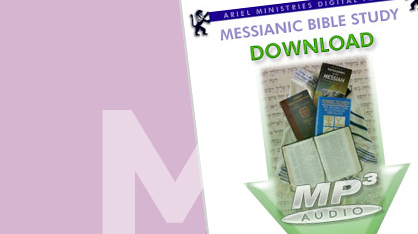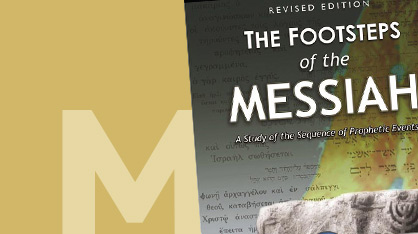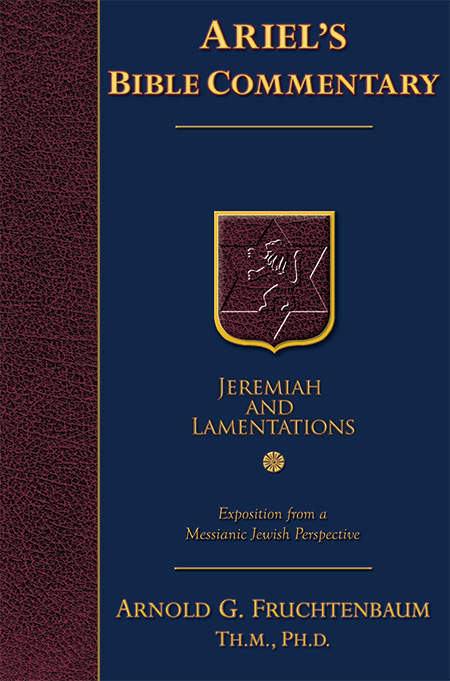
Commentary Series: Jeremiah and Lamentations
by Dr. Arnold G. Fruchtenbaum
In this comprehensive commentary, Dr. Arnold G. Fruchtenbaum offers an in-depth study of the books of Jeremiah and Lamentations from a Messianic Jewish perspective. Drawing on his deep knowledge of Hebrew language and culture as well as his faith in Yeshua as the promised Messiah, the author provides a fresh and insightful interpretation of these ancient texts. Wherever appropriate, he has reproduced the viewpoints of the great rabbis of the past.
Through careful analysis of the historical context, literary structure, and theological themes of Jeremiah and Lamentations, this commentary sheds light on God’s plan for Israel. It deals with topics such as the nature of sin and judgment, the promise of redemption and restoration, and the ultimate fulfillment of God’s covenantal promises to Israel.
Whether you are a scholar, a student, a pastor, or a layperson, this commentary will enrich your study of Jeremiah and Lamentations and deepen your appreciation of the Messianic Jewish perspective on the Scriptures.
- Hardcover: 912 pages
- ISBN: 978-1-958552-02-5
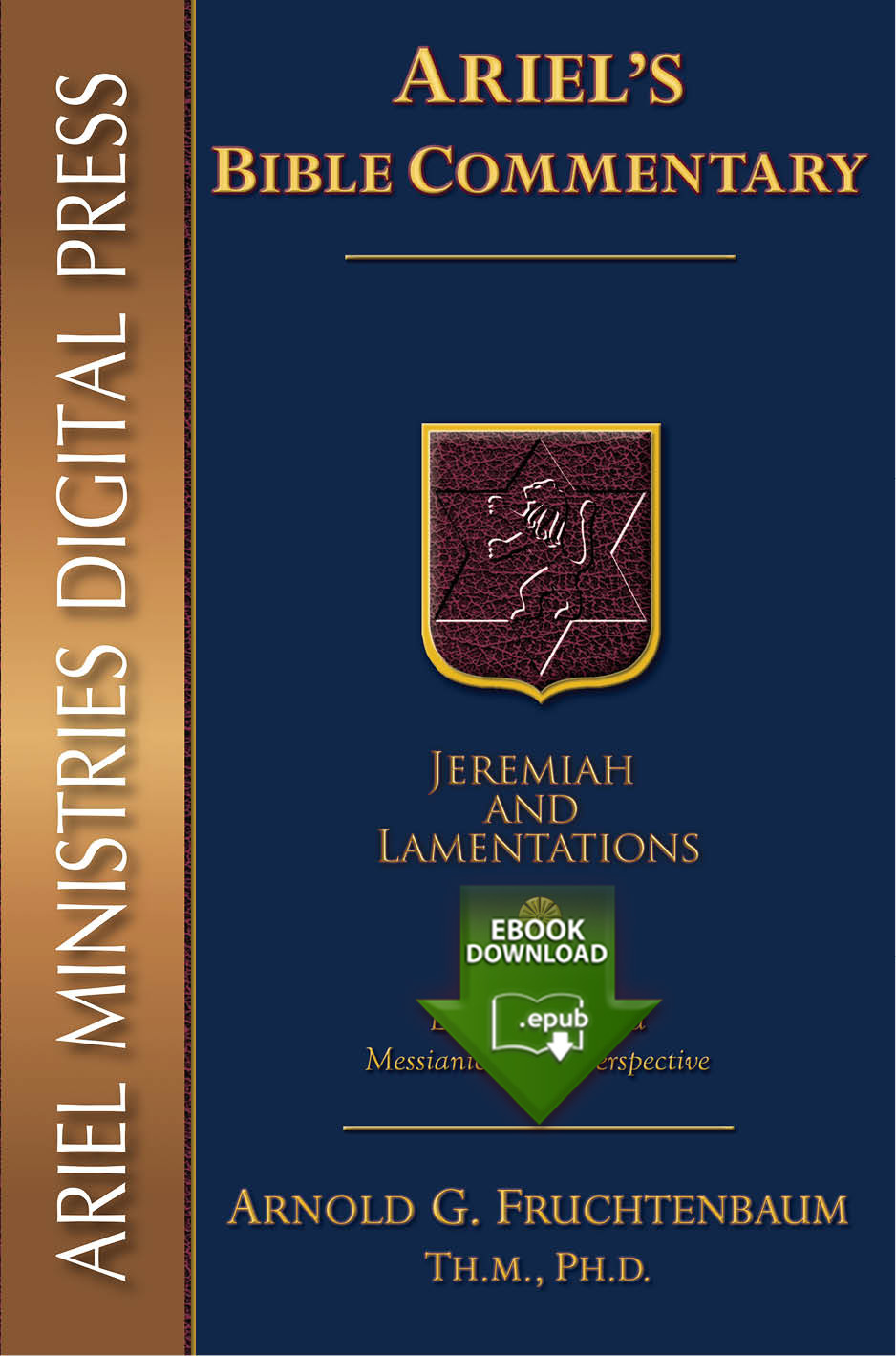
Commentary Series: Jeremiah and Lamentations (epub)
by Dr. Arnold G. Fruchtenbaum
In this comprehensive commentary, Dr. Arnold G. Fruchtenbaum offers an in-depth study of the books of Jeremiah and Lamentations from a Messianic Jewish perspective. Drawing on his deep knowledge of Hebrew language and culture as well as his faith in Yeshua as the promised Messiah, the author provides a fresh and insightful interpretation of these ancient texts. Wherever appropriate, he has reproduced the viewpoints of the great rabbis of the past.
Through careful analysis of the historical context, literary structure, and theological themes of Jeremiah and Lamentations, this commentary sheds light on God’s plan for Israel. It deals with topics such as the nature of sin and judgment, the promise of redemption and restoration, and the ultimate fulfillment of God’s covenantal promises to Israel.
Whether you are a scholar, a student, a pastor, or a layperson, this commentary will enrich your study of Jeremiah and Lamentations and deepen your appreciation of the Messianic Jewish perspective on the Scriptures.
- 912 pages
- Approximate download file size is 5 MB
- ISBN: 978-1-958552-04-9
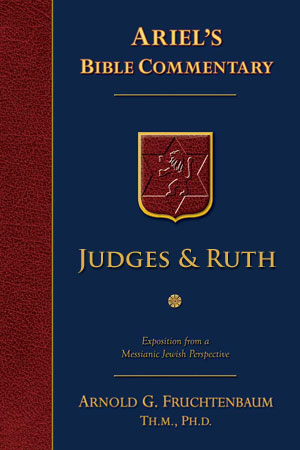
Commentary Series: Judges and Ruth
by Dr. Arnold G. Fruchtenbaum
In his action-packed, culturally relevant exegesis of the Book of Judges, Dr. Fruchtenbaum opens a portal where formerly unfamiliar names and places come alive with meaning. Armies clash, heroes rise, and human affection for other gods multiplies with soul-numbing impact. We see in his exegesis of the Book of Ruth a contrasting, in-depth picture of life among the true believers living in Bethlehem during this ancient time.
These two history books are set in the time when Israel was in the Land but not yet a unified nation. Although God continues to hear the cry of the children of Israel each time they fall away and face turmoil, they fall ever further into spiritual blindness because of their disobedience. Eventually, even the spiritual leaders become immune to their own glaring indifference to God’s Word. In all, God sent twelve Judges to save the children of Israel. Seven of these Judges are treated in detail as Israel goes through each cycle of apostasy, oppression, repentance, and salvation by a Judge.
The Book of Ruth, an appendix to the Book of Judges, presents enormously touching portraits of Naomi, Ruth, and Boaz. They are pictured as part of the faithful community of Messianic Jewish believers of their own time, worthy ancestors of King David and the promised King Messiah yet to be revealed.
- Hardcover: 380 pages
- ISBN: 978-1-935174-58-5
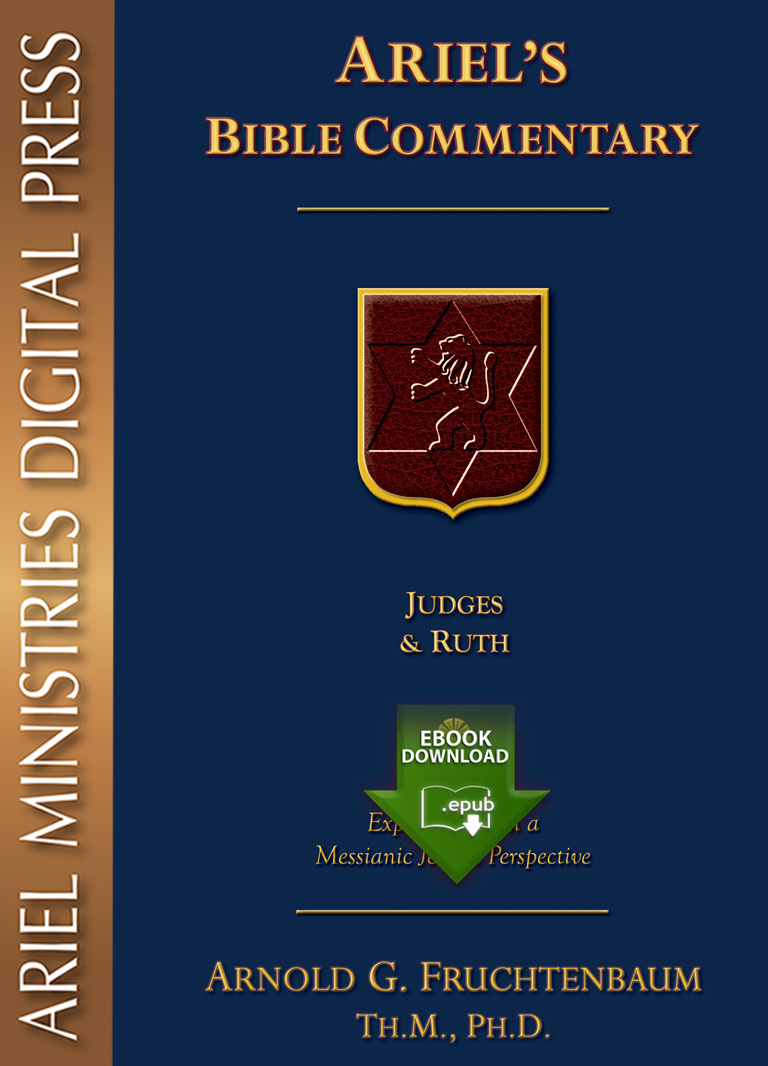
Commentary Series: Judges & Ruth (epub)
by Dr. Arnold Fruchtenbaum
In his action-packed, culturally relevant exegesis of the Book of Judges, Dr. Fruchtenbaum opens a portal where formerly unfamiliar names and places come alive with meaning. Armies clash, heroes rise, and human affection for other gods multiplies with soul-numbing impact. We see in his exegesis of the Book of Ruth a contrasting, in-depth picture of life among the true believers living in Bethlehem during this ancient time.
These two history books are set in the time when Israel was in the Land but not yet a unified nation. Although God continues to hear the cry of the children of Israel each time they fall away and face turmoil, they fall ever further into spiritual blindness because of their disobedience. Eventually, even the spiritual leaders become immune to their own glaring indifference to God's Word. In all, God sent twelve Judges to save the children of Israel. Seven of these Judges are treated in detail as Israel goes through each cycle of apostasy, oppression, repentance, and salvation by a Judge.
The Book of Ruth, an appendix to the Book of Judges, presents enormously touching portraits of Naomi, Ruth, and Boaz. They are pictured as part of the faithful community of Messianic Jewish believers of their own time, worthy ancestors of King David and the promised King Messiah yet to be revealed.
- Ebook for Kindle and Epub readers
- 380 pages
- Approximate download file size is 1.2MB
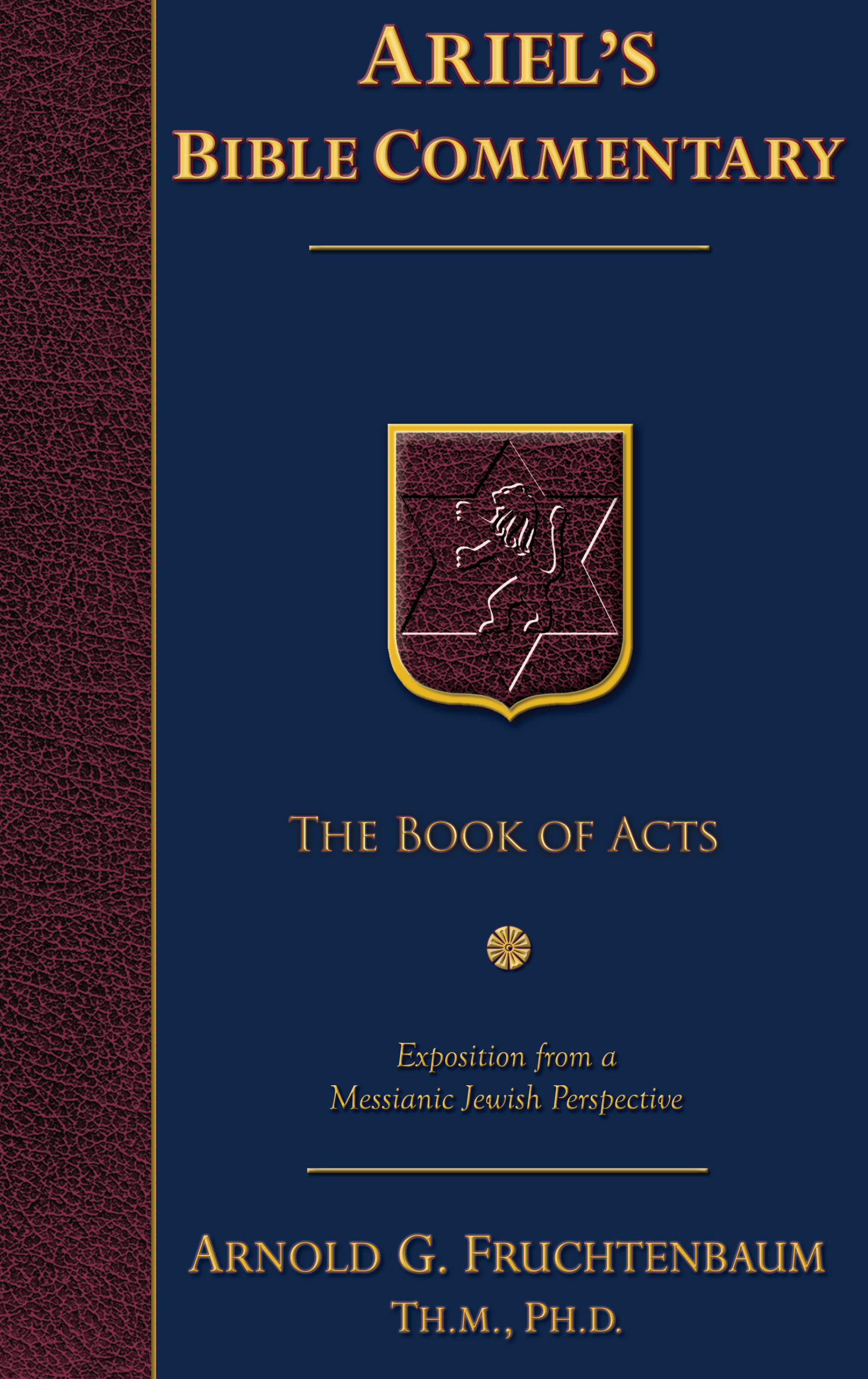
Commentary Series: The Book of Acts
by Dr. Arnold G. Fruchtenbaum
The book of Acts is an exciting and valuable biographical account of the first followers of Yeshua the Jewish Messiah and the first thirty years of the history of the church, the body of the Messiah. It records the enormous success of the apostles who, in the power of their God, started spreading the good news of the Jewish Messiah first throughout the Jewish world and later throughout the non-Jewish world. Opening with the resurrected Yeshua training His disciples, the book naturally follows the description of the life of the Messiah in the Gospels, and especially in the Gospel of Luke. The first fifteen chapters and chapter 21 of Acts are particularly relevant to the Scriptures' Jewish frame of reference in general and the Messianic Jewish community in particular.
- Hardcover: 596 pages
- ISBN: 978-1-951059-66-8
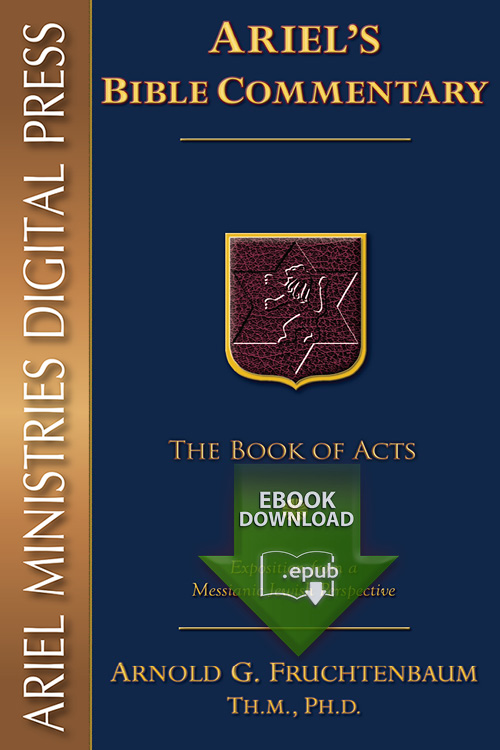
Commentary Series: The Book of Acts (epub)
by Dr. Arnold G. Fruchtenbaum
The book of Acts is an exciting and valuable biographical account of the first followers of Yeshua the Jewish Messiah and the first thirty years of the history of the church, the body of the Messiah. It records the enormous success of the apostles who, in the power of their God, started spreading the good news of the Jewish Messiah first throughout the Jewish world and later throughout the non-Jewish world. Opening with the resurrected Yeshua training His disciples, the book naturally follows the description of the life of the Messiah in the Gospels, and especially in the Gospel of Luke. The first fifteen chapters and chapter 21 of Acts are particularly relevant to the Scriptures' Jewish frame of reference in general and the Messianic Jewish community in particular.
- Ebook for Kindle and Epub readers
- 574 pages
- Approximate download file size is 7.01 MB
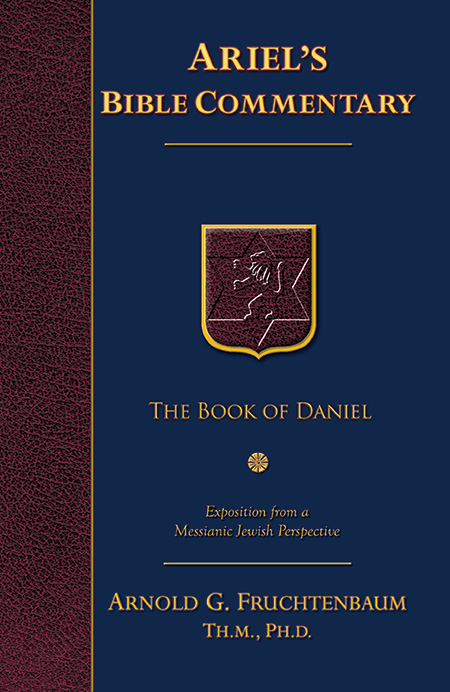
Commentary Series: The Book of Daniel
by Dr. Arnold G. Fruchtenbaum
The book of Daniel, though one of the most intriguing prophetic texts in the Hebrew Scriptures, presents a comprehensive and chronological prophetic picture of the broad sweep of history. In this detailed exposition, Dr. Fruchtenbaum offers a fresh and coherent understanding of the prophecies in the book of Daniel. He examines the historical and cultural context of the book, its literary structure, and its theological themes. He explains how these prophecies relate to the history of Israel, especially in the context of the times of the Gentiles. He addresses alleged historical inaccuracies, considers the rabbinic interpretation as well as apocryphal additions, and offers a unique and convincing interpretation of Daniel’s seventy sevens. Numerous charts, tables, and maps give additional clarity to the text.
Whether you are a student of the Scriptures, a pastor, or a layperson seeking to deepen your understanding of biblical prophecy, this commentary will provide a clear and coherent exposition of the book of Daniel from a Messianic Jewish perspective, illuminating the prophetic message of this important book and its relevance for the history of this world.
- Hardcover: 630 pages
- ISBN: 978-1-958552-01-8
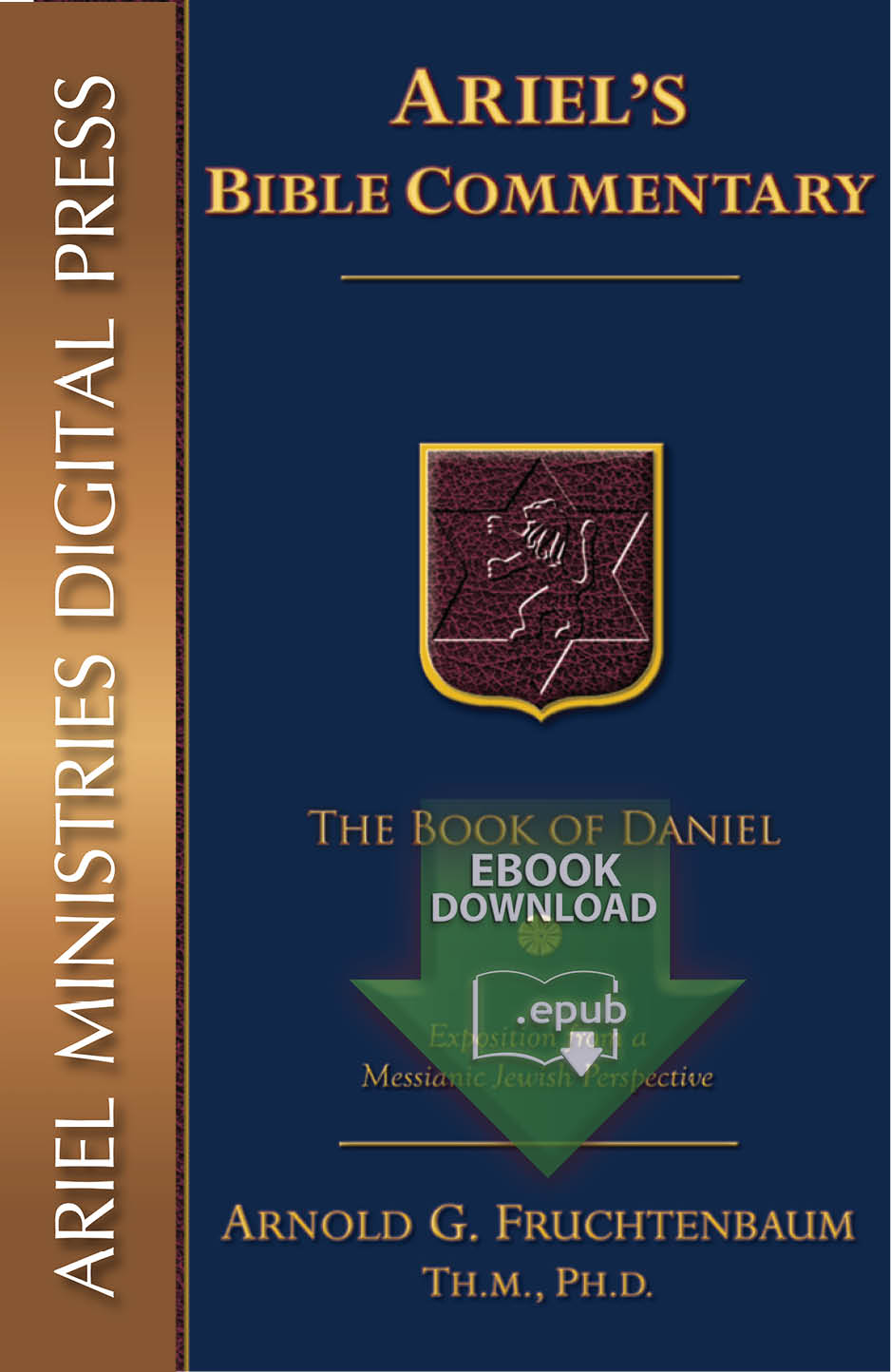
Commentary Series: The Book of Daniel (epub)
by Dr. Arnold G. Fruchtenbaum
The book of Daniel, though one of the most intriguing prophetic texts in the Hebrew Scriptures, presents a comprehensive and chronological prophetic picture of the broad sweep of history. In this detailed exposition, Dr. Fruchtenbaum offers a fresh and coherent understanding of the prophecies in the book of Daniel. He examines the historical and cultural context of the book, its literary structure, and its theological themes. He explains how these prophecies relate to the history of Israel, especially in the context of the times of the Gentiles. He addresses alleged historical inaccuracies, considers the rabbinic interpretation as well as apocryphal additions, and offers a unique and convincing interpretation of Daniel’s seventy sevens. Numerous charts, tables, and maps give additional clarity to the text.
Whether you are a student of the Scriptures, a pastor, or a layperson seeking to deepen your understanding of biblical prophecy, this commentary will provide a clear and coherent exposition of the book of Daniel from a Messianic Jewish perspective, illuminating the prophetic message of this important book and its relevance for the history of this world.
- Ebook for Kindle and Epub readers
- 630 pages
- ISBN: 978-1-958552-05-6
- Approximate download file size is 5.3 MB
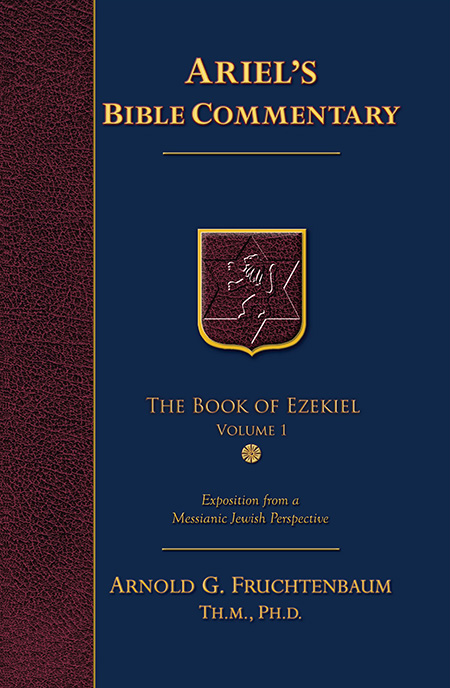
Commentary Series: The Book of Ezekiel - Vol. 1 (1 - 32)
by Dr. Arnold G. Fruchtenbaum
The book of Ezekiel stands as one of the most enigmatic and captivating texts of the Hebrew Bible, filled with vivid visions of whirling wheels, dry bones, and divine judgment. Yet, for many readers, these complex images present a barrier to understanding, leaving them overwhelmed and disconnected from the book’s profound spiritual and literary depth.
In this comprehensive verse-by-verse commentary, Messianic Jewish Bible scholar Dr. Arnold G. Fruchtenbaum expertly guides readers through the first thirty-two chapters of Ezekiel, demystifying its rich content with scholarly insight. Drawing from both Jewish rabbinic sources and Christian academic works, Dr. Fruchtenbaum offers a balanced, in-depth perspective that sheds light on Ezekiel’s prophetic messages.
Whether exploring the prophecies foreseeing the destruction of the First Temple or those regarding Israel’s future restoration, this commentary provides clarity and understanding for anyone willing to delve into this often-overlooked book.
- Hardcover: 673 pages
- ISBN: 978-1-958552-13-1
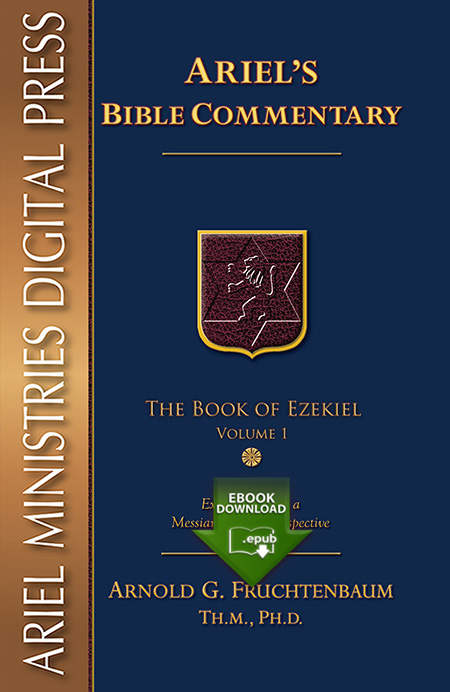
Commentary Series: The Book of Ezekiel - Vol. 1 (epub)
by Dr. Arnold G. Fruchtenbaum
The book of Ezekiel stands as one of the most enigmatic and captivating texts of the Hebrew Bible, filled with vivid visions of whirling wheels, dry bones, and divine judgment. Yet, for many readers, these complex images present a barrier to understanding, leaving them overwhelmed and disconnected from the book’s profound spiritual and literary depth.
In this comprehensive verse-by-verse commentary on the Book of Ezekiel, Messianic Jewish Bible scholar Dr. Arnold G. Fruchtenbaum expertly guides readers through the first thirty-two chapters of Ezekiel, demystifying its rich content with scholarly insight. Drawing from both Jewish rabbinic sources and Christian academic works, Dr. Fruchtenbaum offers a balanced, in-depth perspective that sheds light on Ezekiel’s prophetic messages.
Whether exploring the prophecies foreseeing the destruction of the First Temple or those regarding Israel’s future restoration, this commentary provides clarity and understanding for anyone willing to delve into this often-overlooked book.
- 673 pages
- Approximate download file size is 4 MB
- ISBN: 978-1-958552-14-8
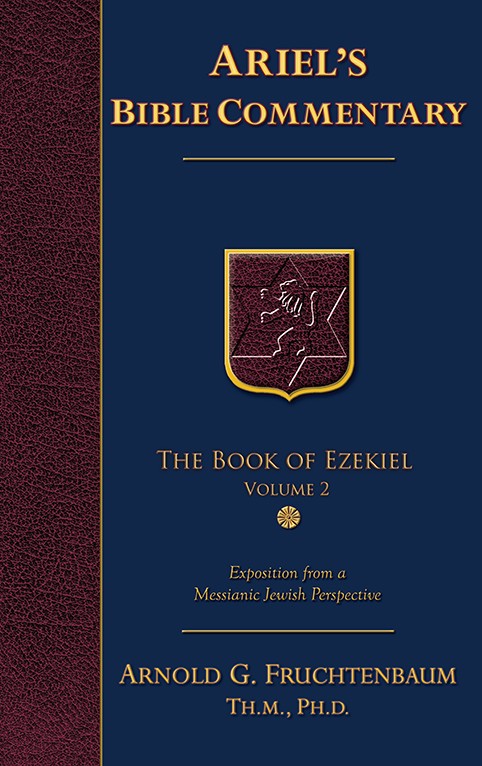
Commentary Series: The Book of Ezekiel - Vol. 2 (33 - 48)
by Dr. Arnold G. Fruchtenbaum
This volume concludes Dr. Arnold G. Fruchtenbaum’s comprehensive two-part commentary on the book of Ezekiel.
While the initial chapters of Ezekiel focus on impending judgment, this volume shifts to the theme of future restoration. Here, Ezekiel’s vision unfolds with a message of profound hope for Israel: A regathered nation, divinely restored, will witness the establishment of a new Temple and a new form of worship in the land promised to their forefathers. The people of Israel will finally experience enduring peace and security, as their Messiah—the Lover of their souls—reigns from the throne of David in Jerusalem.
- Hardcover: 439 pages
- ISBN: 978-1-958552-15-5
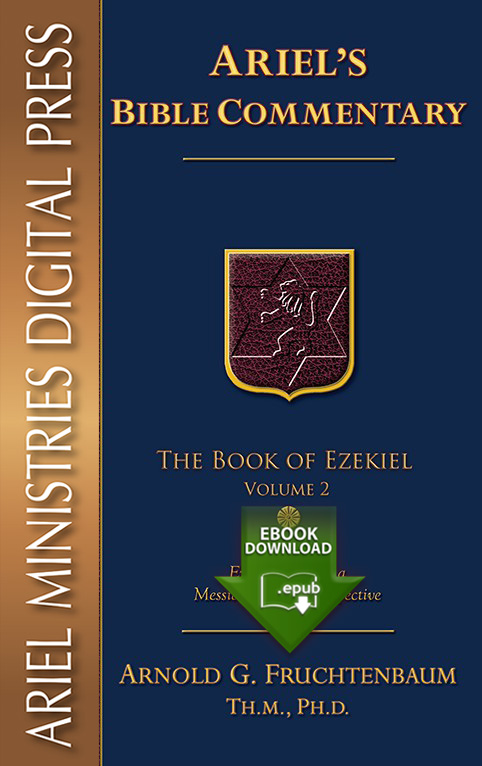
Commentary Series: The Book of Ezekiel - Vol. 2 (Epub)
by Dr. Arnold G. Fruchtenbaum
This volume concludes Dr. Arnold G. Fruchtenbaum’s comprehensive two-part commentary on the book of Ezekiel.
While the initial chapters of Ezekiel focus on impending judgment, this volume shifts to the theme of future restoration. Here, Ezekiel’s vision unfolds with a message of profound hope for Israel: A regathered nation, divinely restored, will witness the establishment of a new Temple and a new form of worship in the land promised to their forefathers. The people of Israel will finally experience enduring peace and security, as their Messiah—the Lover of their souls—reigns from the throne of David in Jerusalem.
- Hardcover: 439 page
- Approximate download file size is 6 MB
- ISBN: 978-1-958552-15-5





